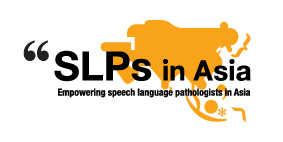Brief History of SLP development
In the 1970s, the Hong Kong government started providing hearing aids for children with hearing impairment and thereafter, speech therapy began to emerge. However, there were no locally trained speech therapists in Hong Kong. A few qualified speech therapists who were educated in other countries and came to Hong Kong with missionaries provided speech therapy services. Due to the severe shortage of speech therapists, the education authorities implemented a transitional measure by establishing a position called the “Teacher Assisting Speech Therapy” (TAST) to provide speech and language therapy for children with disabilities in special schools.
Education
In 1988, The University of Hong Kong (HKU) began offering the first local undergraduate degree program in speech therapy, enrolling about 20 speech therapists per year. Today, the program has expanded to train around 60 speech therapists annually. In addition to HKU, The Hong Kong Polytechnic University (PolyU) began to offer an undergraduate degree program in speech therapy in 2023, training about 12 speech therapists per year. In 2013, two self-financed master’s degree programs were developed by PolyU and the Education University of Hong Kong, which admit around 35 or 40 students yearly, respectively. In 2018, the Chinese University of Hong Kong’s master’s degree program admitted around 50 students biennially.
Audiological education and services in Hong Kong began in the 1970s when the Hong Kong government funded a scholarship program to send post-secondary school students and university graduates to one- or two-year audiology programs in other countries such as England and Australia (Chung et al., 2012). Only those who completed two-year master’s degree programs were recognized as audiologists. These audiologists were obligated to serve a government agency or the Education Bureau for three years. In 1996, HKU began offering the first and only two-year master’s audiology program in Hong Kong. The program accepts eight students biennially. In short, Hong Kong has two bachelor’s programs and three master’s programs that offer a speech therapy degree program whereas only one audiology program is available.
Licensure system
Until the late 2010s, speech therapists and audiologists were not required to be registered with their respective boards or councils before they were allowed to practice in Hong Kong. The Hong Kong government launched the Pilot Accredited Registers (AR) Scheme for Healthcare Professions in 2018, which aimed to establish a regulatory framework for healthcare professions, including setting minimum qualification standards, developing codes of professional conduct, and establishing a disciplinary mechanism. Under the principle of “one profession, one professional body, one register”, the Hong Kong Institute of Speech Therapists (HKIST) was established in 2017. HKIST has been accredited by the Department of Health as the recognized professional body responsible for regulating the speech therapy profession and managing the registration of speech therapists. For a speech therapist to practice in Hong Kong, he or she must hold a bachelor’s degree or higher in speech therapy from a recognized tertiary institution or equivalent. Furthermore, a speech therapist must demonstrate competency as specified in Competency Based Occupational Standards (CBOS) 2011 concerning the supplementary documents by HKIST. On the other hand, the Hong Kong Institute of Audiologists (HKIA) which was established in 2018, is the accredited professional body responsible for regulating the audiology profession and managing the register of audiologists. For an audiologist to practice in Hong Kong, he or she must hold a master’s degree or higher in audiology from a recognized tertiary institution with reference to the supplementary documents by HKIA. In summary, there is no licensure for speech therapists and audiologists in Hong Kong. Nevertheless, the HKIST and HKIA maintain and update the registers of accredited speech therapists and audiologists, respectively, in Hong Kong. Currently, there are over 1,000 speech therapists and over 100 audiologists in Hong Kong providing speech, language, swallowing therapy and audiology services in various public and private institutions.
